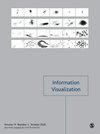PrAVA: Preprocessing profiling approach for visual analytics
IF 1.8
4区 计算机科学
Q3 COMPUTER SCIENCE, SOFTWARE ENGINEERING
引用次数: 3
Abstract
To accommodate the demands of a data-driven society, we have expanded our ability to collect and store data, develop sophisticated algorithms, and generate elaborated visual representations of the data analysis process outcomes. However, data preprocessing, as the activity of transforming the raw data into an appropriate format for subsequent analysis, is still a challenging part of this process. Although we can find studies that address the use of visualization techniques to support the activities in the scope of preprocessing, the current Visual Analytics processes do not consider preprocessing an equally important phase in their processes. Hence, with this paper, we aim to contribute to the discussion of how we can incorporate the preprocessing as a prominent phase in the Visual Analytics process and promote better alternatives to assist the data analysts during the preprocessing activities. To achieve that, we are introducing the Preprocessing Profiling Approach for Visual Analytics (PrAVA), a conceptual Visual Analytics process that includes Preprocessing Profiling as a new phase. It also contemplates a set of guidelines to be considered by new solutions adopting PrAVA. Moreover, we analyze its applicability through use case scenarios that show resourceful methods for data understanding and evaluation of the preprocessing impacts. As a final contribution, we indicate a list of research opportunities in the scope of preprocessing combined with visualization and Visual Analytics to stimulate a shift to visual preprocessing.PrAVA:用于视觉分析的预处理评测方法
为了满足数据驱动社会的需求,我们扩展了收集和存储数据的能力,开发了复杂的算法,并生成了数据分析过程结果的详细视觉表示。然而,数据预处理,作为将原始数据转换为适当格式用于后续分析的活动,仍然是这一过程中具有挑战性的一部分。尽管我们可以发现一些研究涉及使用可视化技术来支持预处理范围内的活动,但当前的视觉分析流程并不认为预处理是其流程中同样重要的阶段。因此,在本文中,我们的目标是帮助讨论如何将预处理作为视觉分析过程中的一个重要阶段,并促进更好的替代方案,以在预处理活动中帮助数据分析师。为了实现这一点,我们引入了用于视觉分析的预处理评测方法(PrAVA),这是一个概念性的视觉分析过程,包括将预处理评测作为一个新阶段。它还考虑了采用PrAVA的新解决方案要考虑的一套指导方针。此外,我们通过用例场景分析了它的适用性,这些场景展示了数据理解和预处理影响评估的足智多谋的方法。作为最后的贡献,我们列出了预处理与可视化和视觉分析相结合的研究机会列表,以促进向视觉预处理的转变。
本文章由计算机程序翻译,如有差异,请以英文原文为准。
求助全文
约1分钟内获得全文
求助全文
来源期刊

Information Visualization
COMPUTER SCIENCE, SOFTWARE ENGINEERING-
CiteScore
5.40
自引率
0.00%
发文量
16
审稿时长
>12 weeks
期刊介绍:
Information Visualization is essential reading for researchers and practitioners of information visualization and is of interest to computer scientists and data analysts working on related specialisms. This journal is an international, peer-reviewed journal publishing articles on fundamental research and applications of information visualization. The journal acts as a dedicated forum for the theories, methodologies, techniques and evaluations of information visualization and its applications.
The journal is a core vehicle for developing a generic research agenda for the field by identifying and developing the unique and significant aspects of information visualization. Emphasis is placed on interdisciplinary material and on the close connection between theory and practice.
This journal is a member of the Committee on Publication Ethics (COPE).
 求助内容:
求助内容: 应助结果提醒方式:
应助结果提醒方式:


